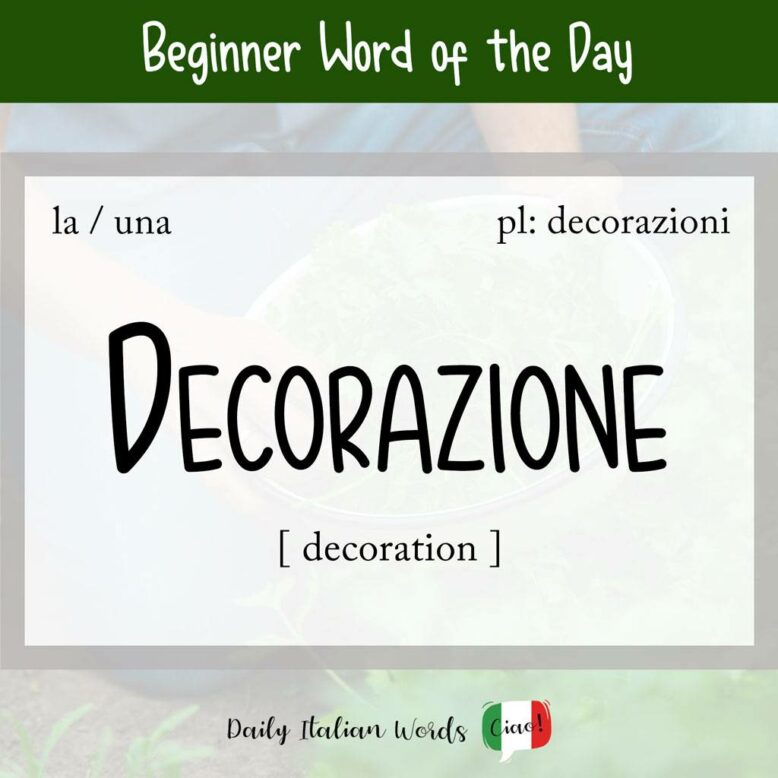The word for decoration (or ornament) in Italian is decorazione which, given the shared origin of the two words, shouldn’t be in the least bit difficult for English speakers to remember!

The word derives from the Late Latin decoratio(n), which in turn comes from the verb decorare. As a feminine noun, it takes the following definite and indefinite articles:
- la decorazione = the decoration
- una decorazione = a decoration
- le decorazioni = the decorations
- delle decorazioni = some decorations
When referring specifically to a Christmas decoration, you can say either decorazione natalizia or decorazione di Natale.
Ho messo delle bellissime decorazioni natalizie sull’albero.
I put some very beautiful Christmas decorations on the tree.
Some popular Christmas decorations that you’ll find adorning most homes in Italy include:
- pallina di Natale = Christmas ball
- luci di Natale = Christmas lights
- campanella = little bell
- ghirlanda = wreath
- candela = candle
- fiocco = bow
- calendario dell’Avvento = advent calendar
- decorazione natalizia fai da te = DIY Christmas decoration
In addition to referring to the physical objects used to beauty a living space, decorazione can also denote the act of decorating, as in the following sentence.
Sabato ci siamo dedicati alla decorazione della casa.
On Saturday, we spent the day decorating the house.
What’s more, much like the English word decoration, decorazione can be used to describe an honour, commendation or accolade, such as for example, una decorazione militare (a miliary decoration).

Another word that is extremely close in meaning to decorazione is addobbo (masculine, plural: addobbi).
addobbo
It too translates to decoration or ornament. The verb addobbare is often used to talk about decorating the house or a tree for Christmas.
Non ho ancora addobbato la casa per le feste!
I haven’t decorated the house for the holidays yet!
Heather Broster is a graduate with honours in linguistics from the University of Western Ontario. She is an aspiring polyglot, proficient in English and Italian, as well as Japanese, Welsh, and French to varying degrees of fluency. Originally from Toronto, Heather has resided in various countries, notably Italy for a period of six years. Her primary focus lies in the fields of language acquisition, education, and bilingual instruction.


